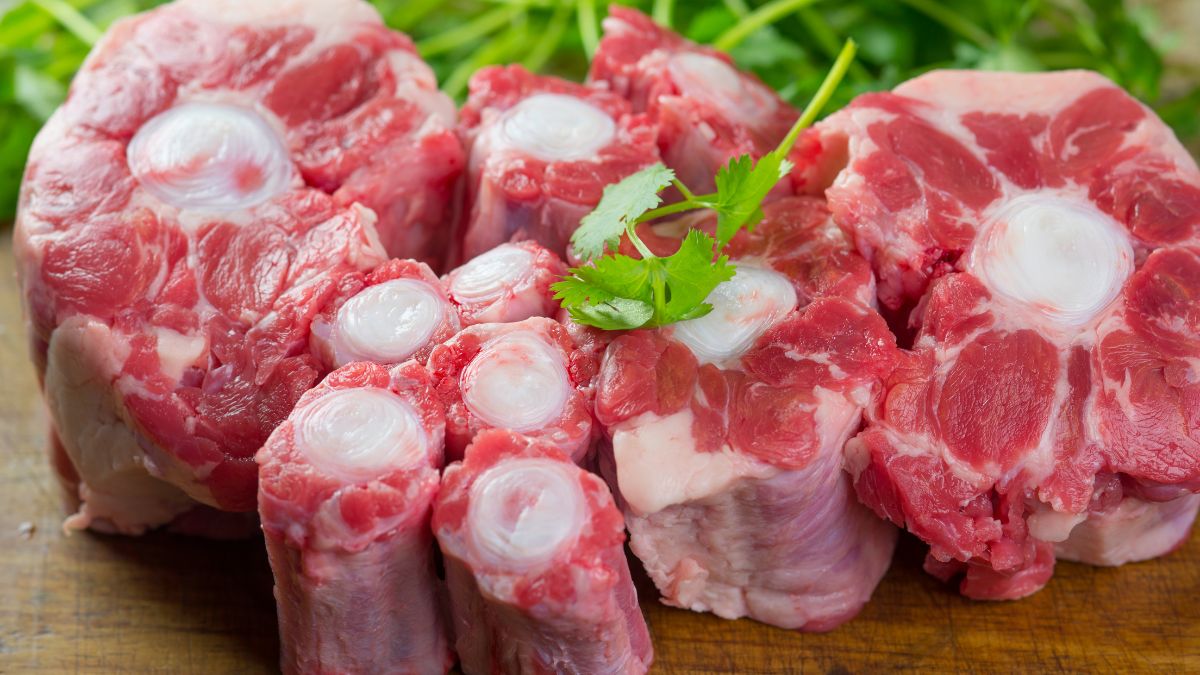Is Oxtail Good for You?

There are so many different opinions on consuming high-fat foods. Oxtail is one of those foods whose benefits people are questioning. So, is oxtail good for you?
Oxtail is good for your health. It has anti-inflammatory effects on your body and improves the quality of your hair, skin, and nails.
Oxtail is a delicacy that requires knowledge of its particularity. The first time I made a dish involving the oxtail was the point when I realized that cooking incorporates science, as well. Here are some valuable details and tips to help you recognize its benefits.
Is Oxtail Good for Weight Loss?
Oxtail is a highly caloric food, but if portioned correctly can be great for weight loss. For example, one portion of 100 grams of oxtail has 262 calories, but those calories come mainly from fat and protein. 130 calories come from fat and 124 from protein. The ratio between fat and protein is 51% and 49% in favor of fats.
Nutritional values are expressed on a sample of 100 grams of oxtail for a 2000-calorie daily intake. [1]
People rarely eat oxtail as a single dish. Everybody serves it with side dishes or as soup. The best way to reduce the intake of calories is to pair the oxtail with vegetables or some low-calorie grains.
If you are making oxtail soup, add generous amounts of onion, carrot, celery, or some other winter vegetables. That is the way of balancing out high-calorie oxtail with low-calorie vegetables.
If you choose an oxtail stew as the main course, pair it with roasted brussels sprouts, broccoli, kale, or cauliflower pure. The possibilities are endless. Just pick out powerhouse vegetables, with high amounts of vitamins, fibers, iron, or calcium.
Oxtail has a small amount of meat whatsoever. It contains cartilage and bone surrounded by meat, fat, and connective tissue. Cartilage and bone are rich in the bone marrow. The best way to prepare oxtail is by slow cooking as it maximizes realizing of those components.
Bone broth is a common type of bouillon. [2] The broth has many health benefits, plus it benefits the weight loss process. Bone broth isn’t very caloric, as it has no added fats.
It is rich in proteins, so it satisfies hunger very well. That means better appetite control which leads to weight loss. Bone broth benefits the digestive system as gelatin helps foods pass through the intestines.
When preparing a bone broth, cook it at least for 3 hours or more to gather all the nutrients. The more you cook it, the more of the cartilage and bone will turn to gelatin. For the best efficiency let it sit throughout the night to become a gelatinous mass. You can freeze it and use it whenever you need a warm cup of comfort.
Is Oxtail Fat Good for You?
Oxtail abounds in fats. About 25% of 51% of overall oxtail fats cover monounsaturated and polyunsaturated fats. [3] [4] Those kinds of fats are healthy fats with proven benefits for weight loss and overall well-being. Bone marrow is rich in omega-3 fatty acids.
The other half of oxtail fats are saturated fats. Saturated fats increase risk factors for LDL – a substandard kind of cholesterol. [5] Oxtail does not contain any trans-fats.
That means you can make a healthy meal by combining the proper vegetables and herbs. When preparing oxtail, avoid adding oil to the dish. Instead, slowly simmer it and cook it in its fat.
Is Oxtail High in Protein?
Oxtail contains 30,9 grams of protein, about half of our daily needs (if a person weighs about 60 kilograms). That is a fantastic amount of protein in a single food.
Cattle and human bodies have a large amount of collagen. Collagen is a kind of protein, located in connective tissue, bones, tendons, cartilage, and skin. [6] It has a chief role in tissue repair, tissue maintenance, and immune response.
There are three dominant amino acids that the body exploits to form proteins: glycine, proline, and arginine. Those are all components of collagen. Let’s see what are their benefits and uses.
Glycine – promotes cellular proliferation and health. [7]
Proline – regenerates cartilage, rehabilitates joints, and mends wounds. [8]
Arginine – dilates blood vessels and heals wounds. [9]
Proteins are vital for the normal function of an organism and the growth of a body. Collagen is present in the bone marrow. Bone marrow has a gelatinous structure. The best way to prepare and save all the nutrients is to slow-cook it with the bone.
By consuming collagen-rich oxtail bone broth frequently, you will see quality improvement in nails, hair, and skin. To boost collagen absorption and synthesis in the body, consume foods rich in vitamin C, copper, and zinc. [10]
Pro Tip: Add white or oyster mushrooms to oxtail stew, and you will get an actual protein bomb. Add a few drops of lemon to the bone broth before eating it.
Is Oxtail Rich in Vitamins and Minerals?
Oxtail is rich in vitamins and minerals.
Essential minerals for your body are iron and zinc, and oxtail has high amounts of both. To be more precise, Iron covers 20% and zinc 68% of daily needs in 100 grams.
What is more, Iron has a role in the transportation of oxygen throughout the body. [11] This means that maintaining normal levels of iron in the blood is essential for having a regular and healthy life. On the other hand, Zinc uplifts your immune system, expedites wound healing, and acts anti-inflammatory. [12]
Essential vitamin B12 covers 41% of daily needs. [13] It will increase your stamina, enhance your memory, and prevents anemia. B12 reduces fatigue and boosts your mood.
Can You Eat Oxtail on a Keto Diet?
You can eat oxtail on a keto diet as it contains no carbohydrates at all. That makes it perfect for a low or no-carb diet. It is suitable for many diets, such as Paleo, Atkins, or LCHF diet.
Oxtail pairs best with all vegetables recommended for the keto diet. You can consume most of them raw or steamed.
Is Oxtail Good for High Blood Pressure?
Oxtail is rich in saturated fats. Saturated fats increase cholesterol levels and blood pressure. The American Heart Association recommends about 13 grams of saturated fats per day. [14] 100 grams of oxtail contains 5,6 grams of saturated fats.
That means you can eat meals prepared with oxtail, only moderate the frequency of eating it. The trick is to cook it with loads of vegetables. Garlic and onion are the best food to lower your cholesterol. [15] So, add a lot of garlic and onion to oxtail soup or stew, to balance the effects.
Also, try to enrich the dish with celery. Celery lowers your blood pressure as it has a high dose of potassium. It is also high in fiber, so it lessens cholesterol levels. [16]
